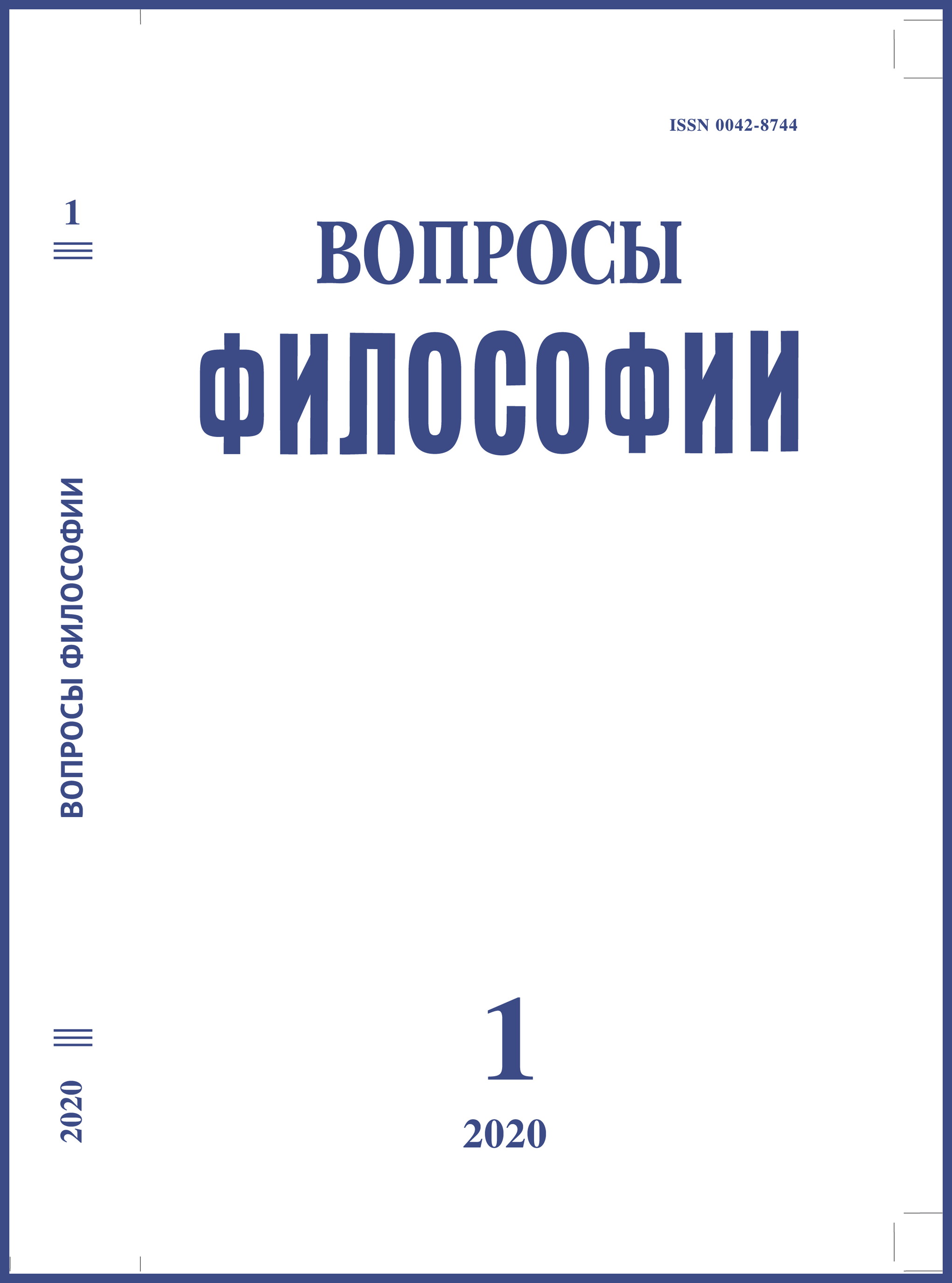About Aristotelian Principles in the Philosophy of Vladimir Soloviev
DOI:
https://doi.org/10.21146/0042-8744-2020-1-45-55Keywords:
Absolute, potency, reality, causes of things, matter, hypostasis, essence, Aristotelianism, Christianity.Abstract
The study focuses on the influence that Aristotle’s ideas had on the philosophy of Vladimir Soloviev. Contrary to popular opinion about the predominantly Platonic roots of Soloviev’s metaphysics of all-unity (“vseedinstvo”), the author shows how exactly, from the earliest works, Soloviev uses the heuristic potential of Aristotelian logic and metaphysics. Thus, creating his doctrine of the Absolute, Soloviev turns to the Aristotelian doctrine of matter, potentiality, to the theory of four causes of things. The comprehension by Vladimir Soloviev of the pair of Aristotelian concepts “dunamis” – “energeia” becomes for him the core for building a dynamic concept of the Absolute and Its other. At the same time, the article uses not only Soloviev’s works of the predominantly 1870s, published during his lifetime, and posthumously published drafts, materials of lecture courses delivered at The Bestuzhev Women’s Courses in St. Petersburg in 1881‒1882, but also record ings of the philosopher. The author draws attention to the fact that a number of
ideas about the first matter, matter as a subject, about energy as the realization of possibilities, in reality, pass a significant modification in the language of Western and Eastern Christianity before they were accepted by Vladimir Soloviev.

